Photo: Will Glasspiegel
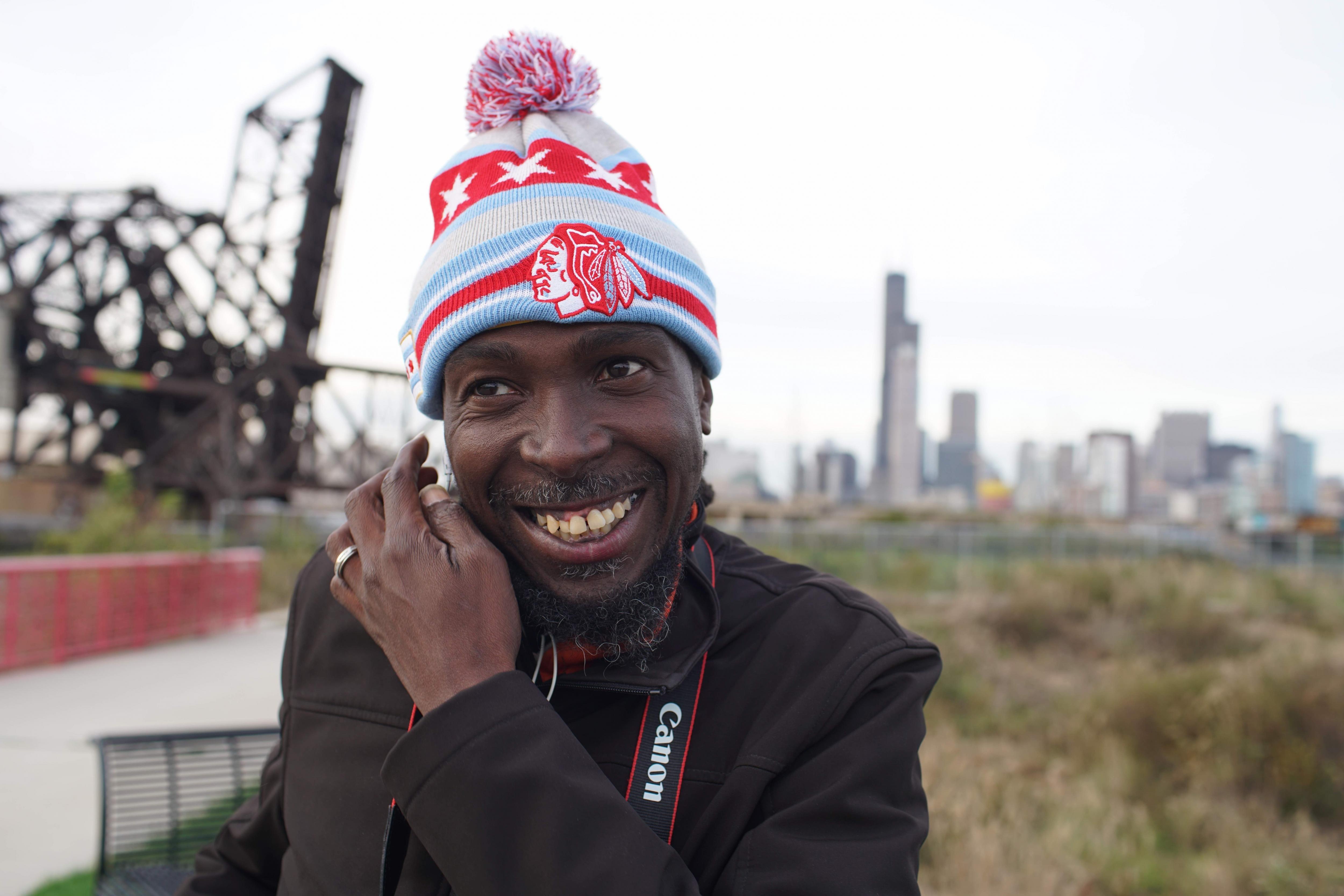
RP Boo in Chicago
news
RP Boo On New Album 'Established!' & The Founding Of Chicago’s Frenetic House Subgenre, Footwork
Chicago DJ/producer RP Boo helped create the superfast dance music known as footwork—20 years later, he still sounds like no one else
"I'm sticking with DJing, because that's about love!" Kavain Wayne Space, aka RP Boo, says from his Chicago home on the zoom call. He wears a sleeveless white t-shirt and his smile lights up the bare room. As you'd maybe expect from a DJ, he talks with his hands, gesturing so emphatically it sometimes looks like he's going to reach back and knock the White Sox cap off the perch behind him.
RP Boo may not talk like an elder statesman, but he's got some grey in his pointed beard, and he's been around for a while. He's one of the pioneers of Chicago footwork or juke, a superfast dance music invented in the mid- and late-90s that is built around rapid fire beats and incessantly repeated tape loops. When RP Boo says, "that's about…that's about love!" he sounds a lot like his own music.
Footwork has had moments where it almost seemed about to break into the mainstream; Kanye West's remix of Kid Sister's 2007 "Pro Nails" was a brief sensation, and DJ Rashad's 2014 album Double Cup received wide praise. But RP Boo has never quite become a household name, though he's gotten more recognition since the release of his first album Legacy in 2013.
His fourth and most recent release, Established! (Planet MU) shows that sort-of success hasn't dimmed his weirdness or slowed down that 160 bpm. He recently spoke to GRAMMY.com about the roots of Chicago footwork, leaving his day job, and being a legend.
<style>.embed-container { position: relative; padding-bottom: 56.25%; height: 0; overflow: hidden; max-width: 100%; } .embed-container iframe, .embed-container object, .embed-container embed { position: absolute; top: 0; left: 0; width: 100%; height: 100%; }</style><div class='embed-container'><iframe src='https://open.spotify.com/embed/album/1tdtDx55BTwtdSjqmAVrsl'frameborder='0' allowtransparency='true' allow='encrypted-media'></iframe></div>
The first track on Established! ("All My Life") is based around this loop that repeats "All my life I've loved to dance." When did you start dancing and did that lead you to making music?
For me, I watched my uncle dance, and he just enjoyed it. And whatever dance he was doing, we didn't know, we just made fun of it. And I got a cousin that I'd say about in '81—he would make these dances up, him and his friends. And it was catchy to me.
I used to try to break dance but couldn't figure it out. And about '85 or '86, that's when the house music in Chicago [started]. It was like, I like these dances. So I picked up this dancing, and got kind of good at it.
And once I learned how to DJ, I still loved dancing. Whatever your body wants to do when you're at a party, whether you know how to dance or not—it's not about you doing it correctly. To be jumping up the dance moves is to be a part of dancing with God.
Read: Record Store Recs: Chicago House Hero Marshall Jefferson On Representation In Dance Music
So when did you start DJing? Was it in the mid-90s or was it earlier than that?
I graduated from high school in 1991. And that's when I started buying my equipment. So as soon as I got out of high school, I just started to—I forget what type of turntables they were, but they had belt drives and they had a pitch on them. And I learned how to work those real fast. How to work the pitch, how to blend the tracks and how to fade the tracks out. How to know the note of records, where you want to come in at and where you want to cut out at. And it was less than a year and a half to mastery.
When you started, Chicago ghetto house was popular. And juke is basically Chicago ghetto house sped up. How did you all start playing this music faster?
It was a group I think, on the West Side. I guess they brain was somewhere else. So they had the DJ, whoever made this tape, instead of playing the vinyl on 33 they put it on 45. And they bashed the dance floor with it. So I guess they won the competition.
But word started getting around and people started imitating the trend, and DJs started producing those 160 bpm [records].
<style>.embed-container { position: relative; padding-bottom: 56.25%; height: 0; overflow: hidden; max-width: 100%; } .embed-container iframe, .embed-container object, .embed-container embed { position: absolute; top: 0; left: 0; width: 100%; height: 100%; }</style><div class='embed-container'><iframe src='https://www.youtube.com/embed/Fb1yBRaQBO8' frameborder='0' allowfullscreen></iframe></div>
The title of your album is Established! with an exclamation point. And I know that it's taken you a long time to get recognition. Do you still have a day job?
No! No.
I was working at a Lowe's Home Improvement store until 2013. That's when I ended up getting let go. And at that point, I think of December of 2012, I had just finished Legacy.
I never thought that I would ever be without a job. The store manager at Lowe's was a real good guy. And he says, "Well, corporate states that you could come back here but you can't be hired for six months."
As I was walking out, I said, "What am I going to do with the next six months?" And I said this out loud, "I think I'm going to start touring."
I was depressed. I stayed depressed—that was in late February. And in late April, I get a phone call from New York. And he says, "I heard you have an album coming out. If we'd known you had an album, we would have booked you to do a release party here in New York."
On the day of the release, I texted back and said I don't have the job [keeping me from touring anymore]. He says, "Can you be here in two weeks?" I was like, "Yeah!" I end up getting at least seven opportunities to play overseas within the first week.
"You just have to be prepared to let the world blossom and blossom with it. But you can't predict it." RP Boo
So you never had to go back to Lowe's.
No.
You just have to be prepared to let the world blossom and blossom with it. But you can't predict it.
<style>.embed-container { position: relative; padding-bottom: 56.25%; height: 0; overflow: hidden; max-width: 100%; } .embed-container iframe, .embed-container object, .embed-container embed { position: absolute; top: 0; left: 0; width: 100%; height: 100%; }</style><div class='embed-container'><iframe src='https://www.youtube.com/embed/ws30MdsSDe4' frameborder='0' allowfullscreen></iframe></div>
Do you hear your music as an influence in a lot of what's out there now?
Oh yes. DJ Rashad [who died in 2014]—I was a great influence on him. And him on me. And so Rashad was saying, "Hey, wait till you hear RP, this is the only guy that would change his style, multiple times. And as he changes it, that influences how other people listen. It's something about how his music just keeps changing."
I was listening to the track "All Over," which has the Phil Collins sample. How did that song come about? Did you have the sample first?
Yeah. Those are the songs I grew up to. In the '80s, we watched the videos, nobody paid attention. But that was the new wave of the future. And these are all the songs; I listened to Genesis, to the Phil Collins solo projects. And I found myself over time collecting them, I have them in my phone. So then I could drive and hear these songs.
I've had it in my archives for years. And I tried to play with it at least about nine years ago, and nothing worked. So I said, in due time I'll come back to it.
And one day I was going through my files just listening to music and I listened to [Phil Collins'] "I Don't Care Anymore." And I looked at the BPM and said, [claps!] "Oh, this is right where I need to begin. And I played with it and let it run. And that's where I stopped it. [Makes a record scratch noise.] [Sings] "All over..ah..ah…all over." And it worked. It worked out.
You have a song called, "Haters Increase the Heat" about overcoming detractors. But when I was listening to it, I thought, who can hate you?! [RP Boo gives a look.] They're out there?
Def. It's more about people that have no clue about what you do or what you're going through. Rashad dealt with that.
And I was like, oh, you know what? Let me make some music. That's why I say, [rhythmically quoting his track] "Haters increase the heat. It's getting hot, it's getting hotter. Haters gonna keep making my tracks get hot."
In other words, I will take the negative and do something productive, and show you what you can do with the negative and make a spark.
Have you been able to continue working during COVID?
I was able to do a lot of direct streams and recorded streaming projects, direct from our festivals overseas, and two remix projects. So I was able to stay busy. [Sighs.] But I've missed the touring.
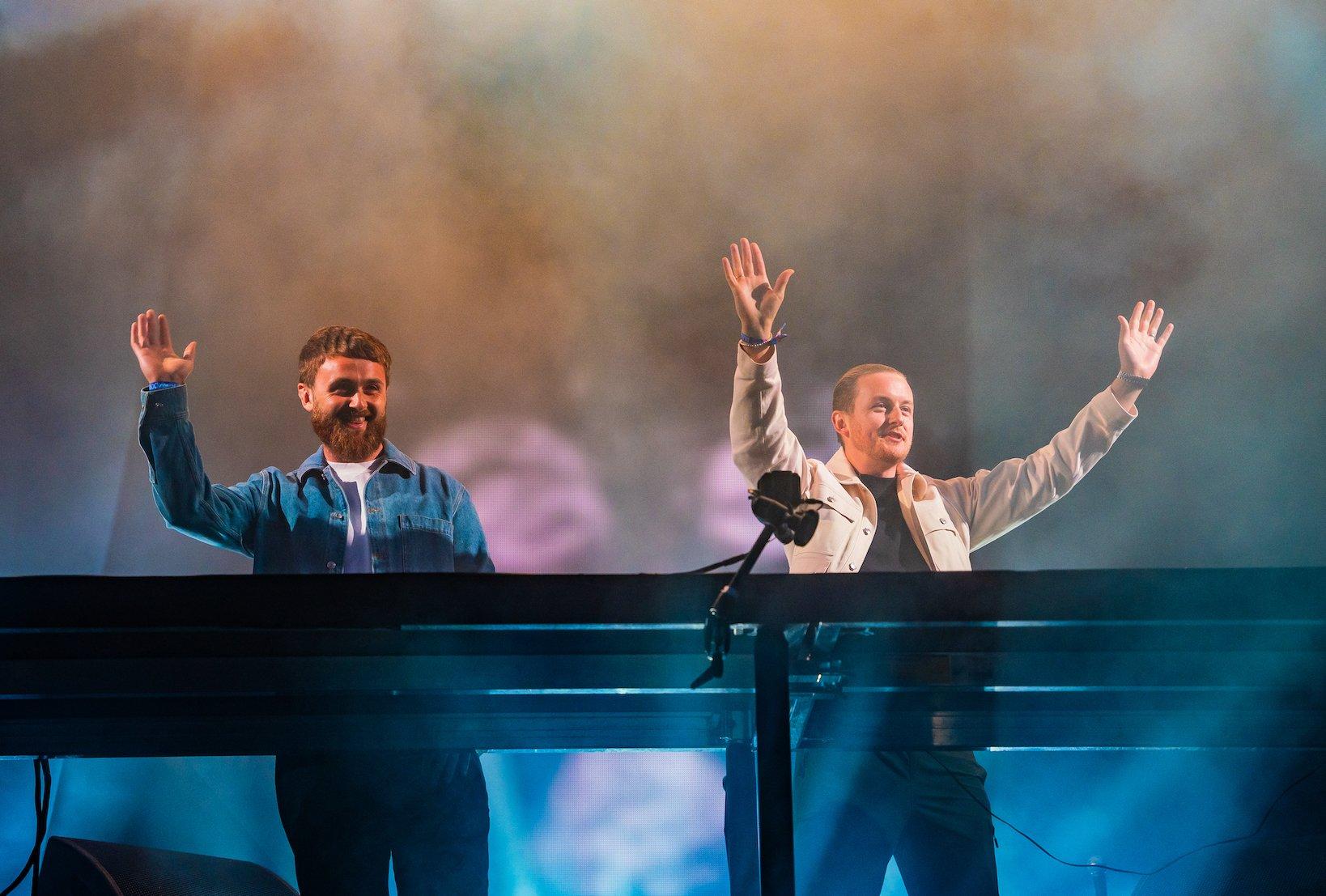
Photo: Venla Shalin/Redferns
news
10 Cant-Miss Sets At HARD Summer 2024: Disclosure, Boys Noize, INVT & More
The L.A. festival is famous for bringing an array of electronic sounds, from dance-pop and experimental techno, to classic house and rare back-to-backs — and this year's lineup features some of the biggest and buzziest acts in dance music.
When it comes to American dance music culture, few events carry the cool cache of a HARD party. Founded on New Year's Eve of 2008 by DJ and former label A&R Gary Richards, the name HARD has become synonymous with taste-making, offering fans an enviable mix of influential headliners and cutting-edge up-and-comers.
HARD parties have been a breakout platform for luminaries like Justice, Skrillex, deadmau5, and more, and the HARD Summer festival is one of the brand's most celebrated flagship events. In 2017, HARD was absorbed into the Insomniac festival family — the same company that brings fan-favorites EDC Las Vegas and Electric Forest to life — which ensures the stage production, on-site activities and other ancillary fun are sure to be supersized. How many festivals do you know that offer a Ferris wheel and a swimming pool?
Coming to Los Angeles' Hollywood Park near SoFi Stadium on Aug. 3 and 4, this year's lineup continues the tradition of blending authoritative artists, legacy DJs and unique back-to-back headliners with buzzy newcomers in a variety of genres and styles.
Whether you wanna rave out with club king Jamie xx, bang your head to bass with Zeds Dead, get tropical with Major Lazer, see what it sounds like for UK grime star Skepta to DJ, or just sing along to mid-2000s belters courtesy of dance-pop crossover queen Nelly Furtado, there's something to please every palette. Of course, in true HARD tradition, we seriously recommend exploring the undercard, because the biggest name in electronic music tomorrow is probably playing one of the HARD side stages today.
While you wrap your head around the stacked lineup, check out a quick guide to 10 must-see acts below.
Boys Noize
A legend on the decks who can play blissful disco or teeth-shattering techno with a smile, Boys Noize is a must-see on any lineup simply because he loves doing the job. He recently teamed with Skrillex on the anthem "Fine Day," and released an entire EP with alt-rap icon Rico Nasty. He's also the producer behind Lady Gaga's beloved Ariana Grande collab, "Rain On Me," and Playboi Carti's "Unlock It," but he's likely to unleash a massive set of hard techno bangers for the L.A. crowd — though you never can tell which direction he'll take you in next, so come with an open mind.
Disclosure
As the top-billed headliner for Saturday night, Disclosure should need little to no introduction to any modern dance music fan — but that doesn't mean you should sleep on their set.
Howard and Guy Lawrence emerged on the scene as seemingly an instant success. The brothers' debut album, Settle, almost single-handedly changed the landscape of popular dance in 2012, moving the taste du jour away from the big-room EDM and bass-heavy trap sound toward a UK garage revival that still carries, and helped launch Sam Smith's career in the process.
In the 12 years that followed, Disclosure has continued to push the envelope — and themselves — working with cross-genre heavyweights including Lorde, Khalid, Miguel, Kelis, Slowthai, and The Weeknd, as well as incorporating international sounds and styles into their club-driven house grooves. Earlier this year, Disclosure returned with the dance floor-ready single "She's Gone, Dance On," announcing themselves as arbiters of disco-laced funk and good-time DJs for 2024 crowds. Surely they'll be in top form come HARD Summer.
INVT
If you like your dark techno to come with a side of hip-shaking Latin rhythms, Miami-bred duo INVT is the experimental sound machine you can't possibly pass up. Luca Medici and Delbert Perez have been best friends since they were kids, and that closeness comes through in their tight experimental sets, blending booming bass with glitched-out techno synths, cumbia rhythms, dembow beats, and acidic edge.
INVT are — as the name may imply — extremely innovative, leaning into their own productions and edits to curate an approach that feels hypnotic, exciting and unique. If you're not afraid of beats that go really hard and get a little weird, this is a set that can set your wild mind ablaze.
Rezzmau5
What happens when you put two of the most unique and hard-hitting producers in electronic music together on one stage? Deadmau5 is one of the scene's leading icons, and Rezz (who released her debut album of deadmau5's Mau5trap label in 2017) shifted bass music culture with her gritty, techno-fueled, half-time sound. The two share a love of dark, stomping, left-field noise, and after years of teasing possible collaborations, those shared interests merged on the 2021 collaboration "Hypnocurrency." Two years later, they released the booming, dystopian 2023 single "Infraliminal" — not just a brilliant rework of deadmau5's 2012 track "Superliminal," but the official introduction to Rezzmau5.
Rezzmau5 haven't released anything since, and live performances from the duo have remained few and far between. But the monolithic duo just warmed up their trippy joint live show at Tomorrowland 2024, which was set in "the mythical realm of Silvyra," a world "filled with creatures, plant life, and people living in harmony." Whether or not their HARD set follows the same storyline, it's certain to shake the skulls of every dancer at Hollywood Park. Prepare your body for something deep, dark and maniacal.
Elderbrook
There aren't many electronic acts that bring the same level of frontman energy that Elderbrook boasts on stage. A multi-talented performer, the UK artist sings and plays instruments, creating a rock-show experience unlike most sets at heavily electronic festivals like HARD. He leads the crowd in heartfelt sing-alongs to hits including "Numb," "Something About You," "Inner Light" and, of course, his megahit CamelPhat collab "Cola."
Bouncing between his microphone, synthesizers and keyboards, samplers and drum pads, his one-man band performance is sure to draw a serious crowd. If you're ready for a break from the hard-edged rave noise and want to ascend to heavenly heights, Elderbrook is the man for the job.
Fisher + Chris Lake (Under Construction)
Nothing is more fun than watching two best mates go absolutely nuts on the decks. And when two stellar DJs go back-to-back, everyone wins, because they spend the whole set trying to impress each other.
Chris Lake is one of the most influential producers in tech house. Fisher is one of the most unhinged and energizing DJs one can ever witness. Together, the besties deliver an over-the-top party with an arsenal of mind-numbing drops, weirdo grooves and just-plain fun vibes that make you wanna hug your friends and dance 'til you sweat. The set is called Under Construction, but make no mistake: these two have completely mastered the blueprint.
JYOTY
If you like your sets to be playful cross-genre explorations of sounds from around the world — tied together by booty-shaking beats and booming bass lines — JYOTY is sure to check all your boxes. She knows how to lead a great party because she spent her childhood frequenting the unmatched clubs of Amsterdam. And with an ethos built around playing whatever the heck she wants, she's comfortable dropping a bit of hip-hop into some Brazilian bops, mixing it up with hard breakbeats, blistering rave synths and more.
Kerri Chandler
If you don't know your history, you're doomed to repeat it, but no one brings the house down quite like Kerri Chandler. A pioneer of the original deep and garage house movements, Chandler was a foundational DJ of the '80s scene, holding down a residency at the legendary Club Zanzibar in New Jersey and founding the MadHouse Records label. If you want to feel the soulful spirit that made electronic music what it is, Chandler's dreamy mix of feel-good melodies served over kickin' club beats are a direct line to house music's roots.
Mary Droppinz
You know how Mary Poppins had a magical bag that held everything from a hat rack to an ornate mirror, a house plant and a Tiffany lamp? Well, California DJ Mary Droppinz comes equipped with a magical USB that's positively bursting with mean beats and original edts.
This woman can blend everything from grimy bouncing bass to ethereal orchestral house, Spice Girls reworks, drum'n'bass bangers, reggae upbeats, '90s R&B remixes and chart-topping hits of the moment twisted into face-melting heaters. You can try to guess where she'll go next, but it's better to just let her take control and follow the vibe through all the devious twists and turns. The one thing you can count on? You'll leave her set dripping with sweat.
Overmono
Disclosure aren't the only brilliant UK brothers on the HARD Summer lineup. Overmono's Tom and Ed Russell hail from Wales and make some of the most inspired club records of our time.
With backgrounds exploring hard techno, drum'n'bass and rave, the brothers combined their talents in 2015 and have since created an enviable blend of soulful atmospheres and frenetic breakbeats that feels nostalgic and sentimental, but still very heavy. Overmono's 2023 album Good Lies is a great play from start to finish, and a good way to get prepped for their critically acclaimed live set. If you need a big-name co-sign, Overmono was recently featured on Fred again..'s "Stayinit" with Lil Yachty on the vocal. That's the caliber they're rockin' with — and the prestige they'll bring to HARD Summer.
Latest Music Festival News
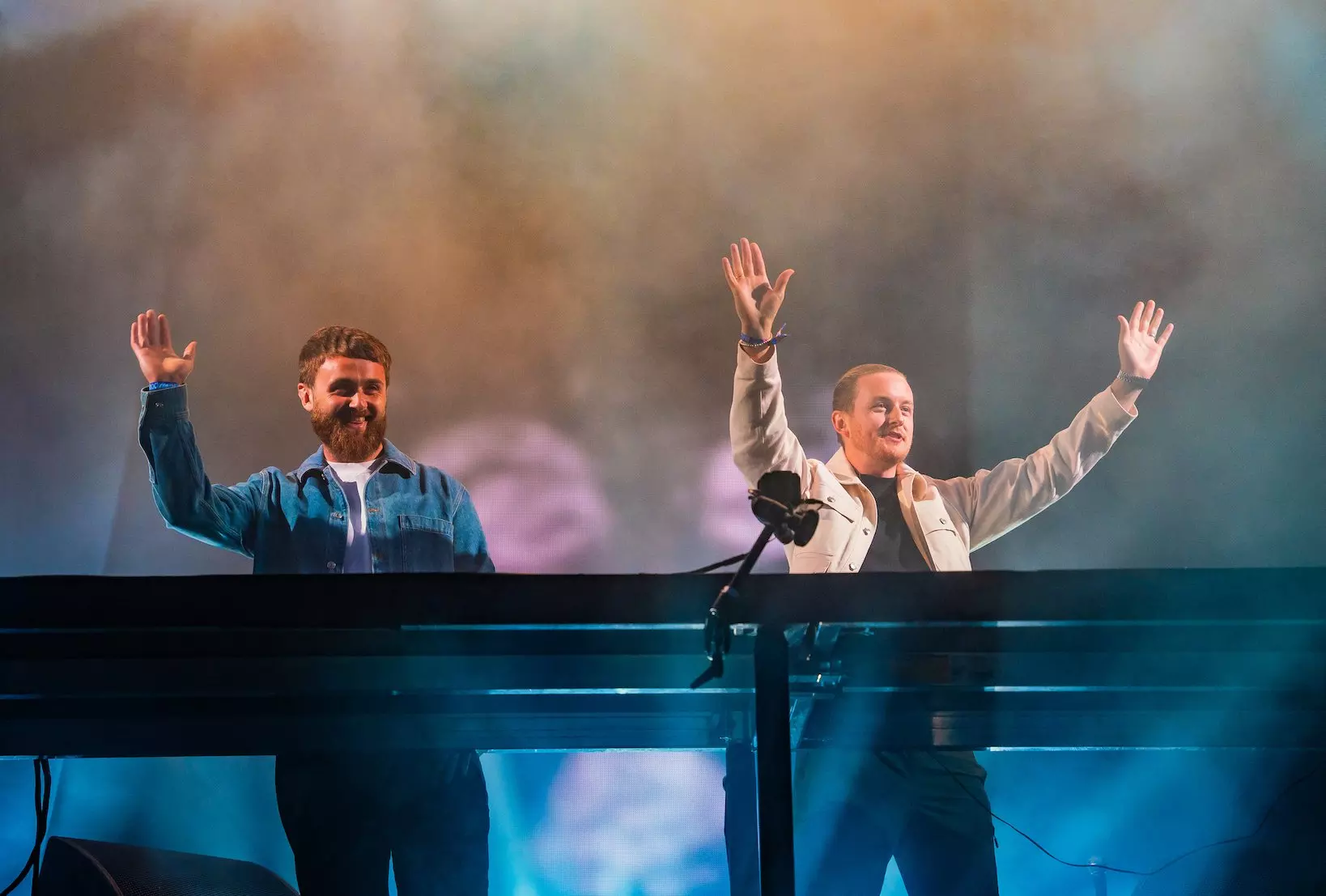
10 Cant-Miss Sets At HARD Summer 2024: Disclosure, Boys Noize, INVT & More
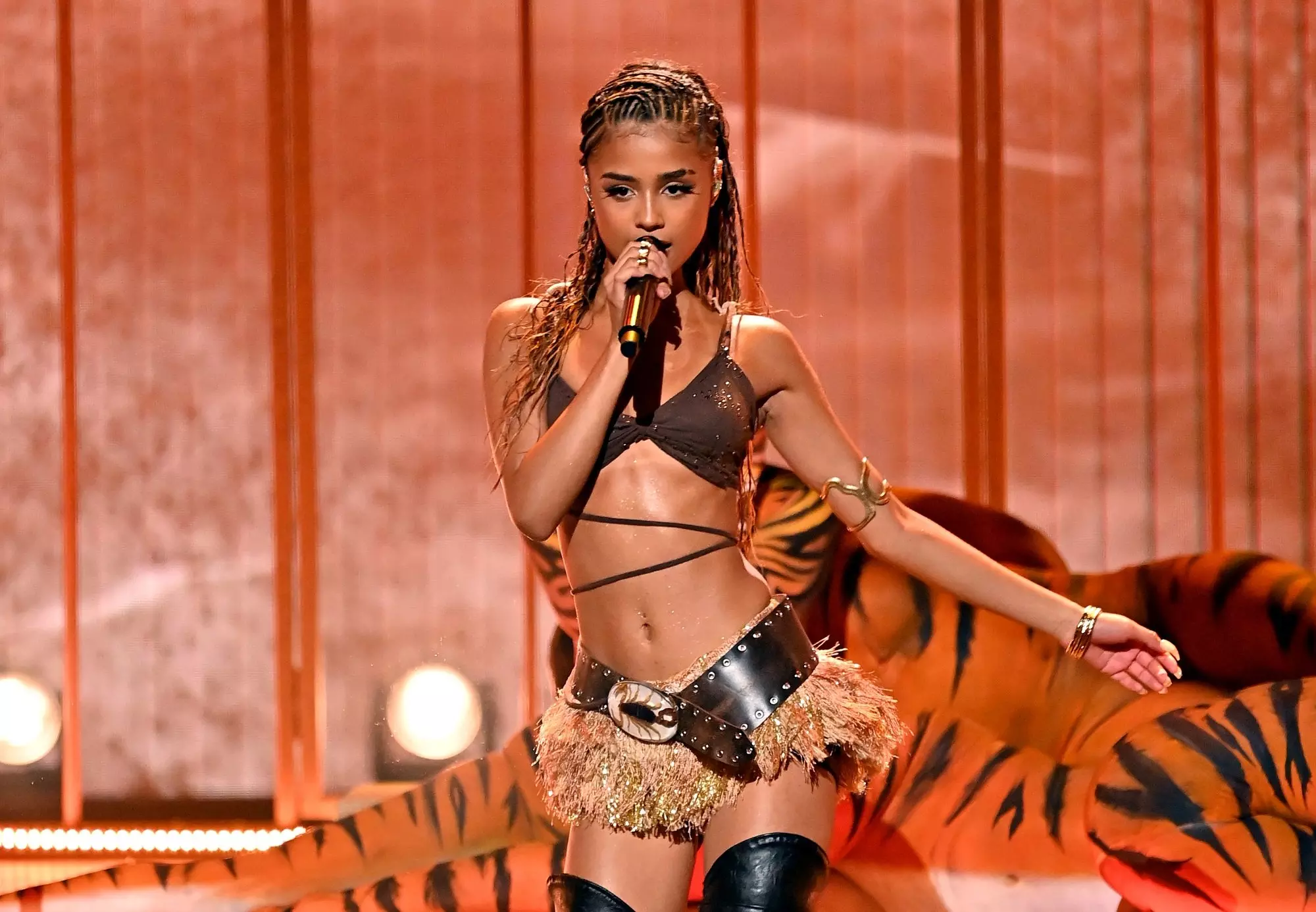
10 Must-See Acts At Lollapalooza 2024: Tyla, SiR, Stray Kids, Dominic Fike & More
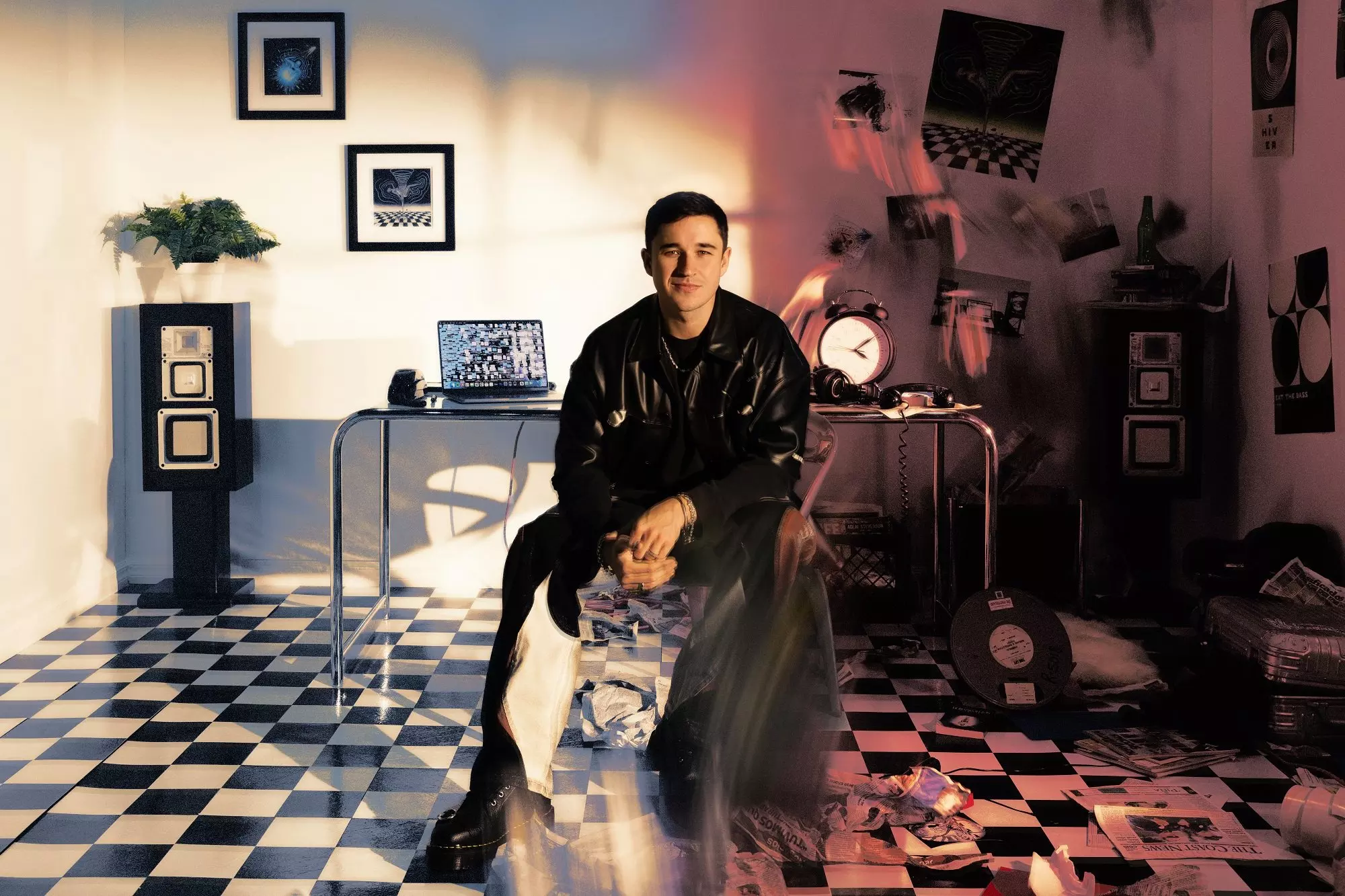
Finding 'Comfort In Chaos': John Summit On The Journey To His Debut Album

Celebrating 30 Years Of Essence Fest: How New Orleans & Multi-Generational, Diasporic Talent Create The "Super Bowl Of Culture"
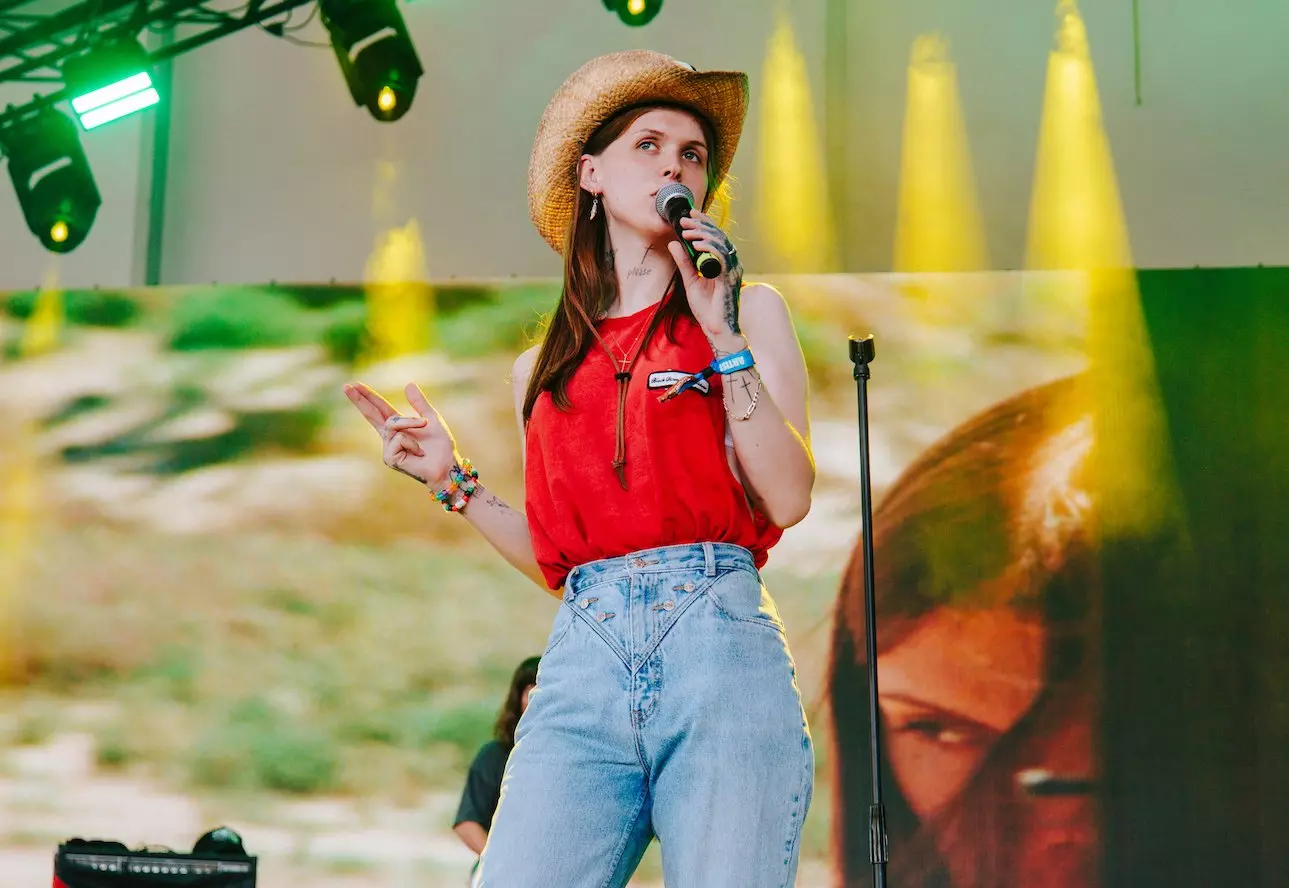
9 Epic Sets From Bonnaroo 2024: Ethel Cain, Melanie Martinez, Megan Thee Stallion & More
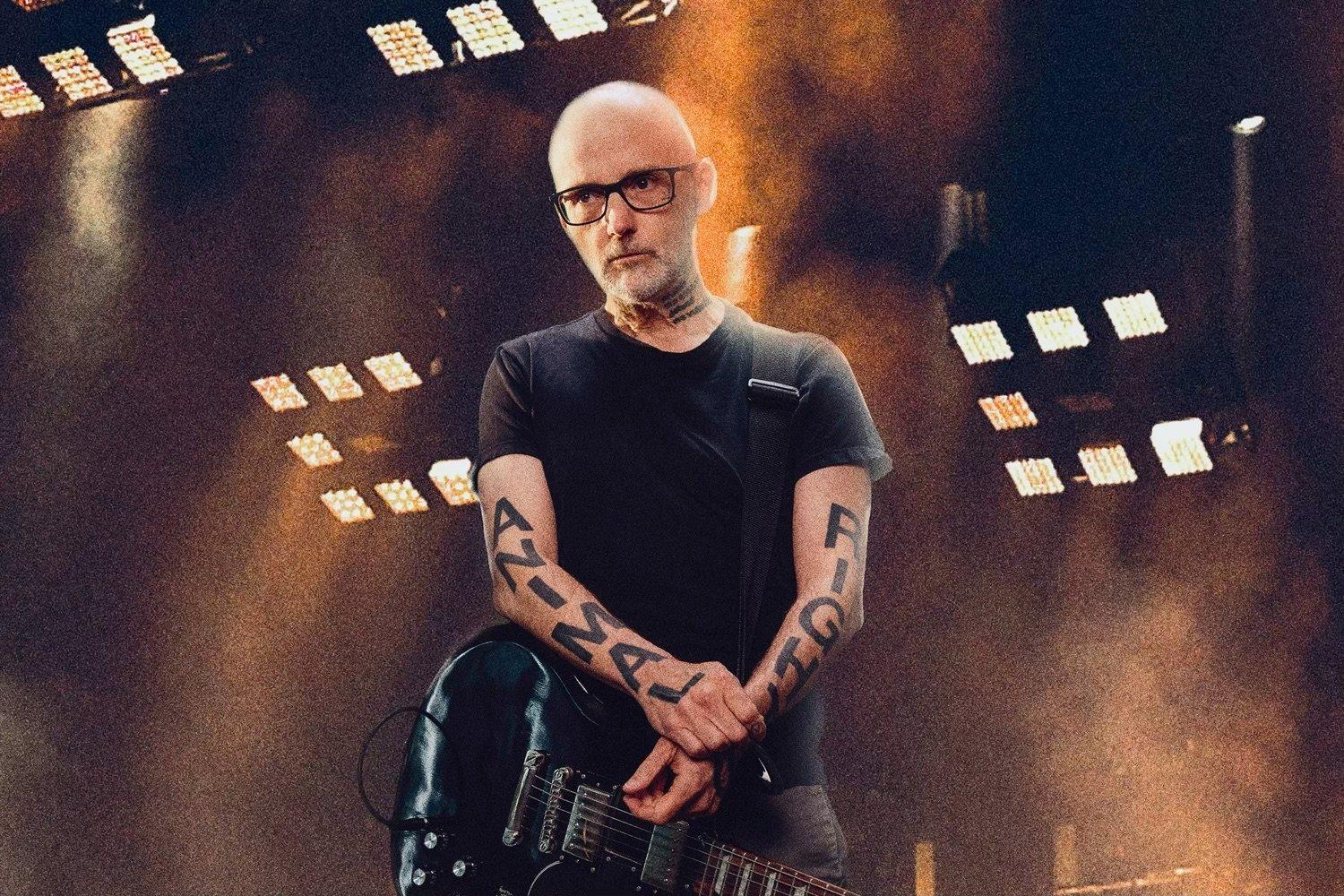
Photo: Mike Formanski
interview
"Let Yourself Be Idiosyncratic": Moby Talks New Album 'Always Centered At Night' & 25 Years Of 'Play'
"We're not writing for a pop audience, we don't need to dumb it down," Moby says of creating his new record. In an interview, the multiple-GRAMMY nominee reflects on his latest album and how it contrasts with his legendary release from 1999.
Moby’s past and present are converging in a serendipitous way. The multiple-GRAMMY nominee is celebrating the 25th anniversary of his seminal work, Play, the best-selling electronic dance music album of all time, and the release of his latest album, always centered at night.
Where Play was a solitary creation experience for Moby, always centered at night is wholly collaborative. Recognizable names on the album are Lady Blackbird on the blues-drenched "dark days" and serpentwithfeet on the emotive "on air." But always centered at night’s features are mainly lesser-known artists, such as the late Benjamin Zephaniah on the liquid jungle sounds of "where is your pride?" and Choklate on the slow grooves of "sweet moon."
Moby’s music proves to have staying power: His early ‘90s dance hits "Go" and "Next is the E" still rip up dancefloors; the songs on Play are met with instant emotional reactions from millennials who heard them growing up. Moby is even experiencing a resurgence of sorts with Gen Z. In 2023, Australian drum ‘n’ bass DJ/producer Luude and UK vocalist Issey Cross reimagined Moby’s classic "Porcelain" into "Oh My." Earlier this year, Moby released "You and Me" with Italian DJ/producer Anfisa Letyago.
Music is just one of Moby’s many creative ventures. He wrote and directed Punk Rock Vegan Movie as well as writing and starring in his homemade documentary, Moby Doc. The two films are produced by his production company, Little Walnut, which also makes music videos, shorts and the podcast "Moby Pod." Moby and co-host Lindsay Hicks have an eclectic array of guests, from actor Joe Manganiello to Ed Begley, Jr., Steve-O and Hunter Biden. The podcast interviews have led to "some of the most meaningful interpersonal experiences," Moby tells GRAMMY.com.
A upcoming episode of "Moby Pod" dedicated to Play was taped live over two evenings at Los Angeles’ Masonic Lodge at Hollywood Forever Cemetery. The episode focuses on Moby recounting his singular experiences around the unexpected success of that album — particularly considering the abject failure of his previous album, Animal Rights. The narrative was broken up by acoustic performances of songs from Play, as well as material from Always Centered at Night (which arrives June 14) with special guest Lady Blackbird. Prior to the taping, Moby spoke to GRAMMY.com about both albums.
'Always centered at night' started as a label imprint then became the title of your latest album. How did that happen?
I realized pretty quickly that I just wanted to make music and not necessarily worry about being a label boss. Why make more busy work for myself?
The first few songs were this pandemic process of going to SoundCloud, Spotify, YouTube and asking people for recommendations to find voices that I wasn’t familiar with, and then figuring out how to get in touch with them. The vast majority of the time, they would take the music I sent them and write something phenomenal.
That's the most interesting part of working with singers you've never met: You don't know what you're going to get. My only guidance was: Let yourself be creative, let yourself be idiosyncratic, let the lyrics be poetic. We're not writing for a pop audience, we don't need to dumb it down. Although, apparently Lady Blackbird is one of Taylor Swift's favorite singers.
Guiding the collaborators away from pop music is an unusual directive, although perhaps not for you?
What is both sad and interesting is pop has come to dominate the musical landscape to such an extent that it seems a lot of musicians don't know they're allowed to do anything else. Some younger people have grown up with nothing but pop music. Danaé Wellington, who sings "Wild Flame," her first pass of lyrics were pop. I went back to her and said, "Please be yourself, be poetic." And she said, "Well, that’s interesting because I’m the poet laureate of Manchester." So getting her to disregard pop lyrics and write something much more personal and idiosyncratic was actually easy and really special.
You certainly weren’t going in the pop direction when making 'Play,' but it ended up being an extremely popular album. Did you have a feeling it was going to blow up the way it did?
I have a funny story. I had a date in January 1999 in New York. We went out drinking and I had just gotten back the mastered version of Play. We're back at my apartment, and before our date became "grown up," we listened to the record from start to finish. She actually liked it. And I thought, Huh, that's interesting. I didn't think anyone was going to like this record.
You didn’t feel anything different during the making of 'Play?'
I knew to the core of my being that Play was going to be a complete, abject failure. There was no doubt in my mind whatsoever. It was going to be my last record and it was going to fail. That was the time of people going into studios and spending half a million dollars. It was Backstreet Boys and Limp Bizkit and NSYNC; big major label records that were flawlessly produced. Play was made literally in my bedroom.
I slept under the stairs like Harry Potter in my loft on Mott Street. I had one bedroom and that's where I made the record on the cheapest of cheap equipment held up literally on milk crates. Two of the songs were recorded to cassette, that's how cheap the record was. It was this weird record made by a has-been, a footnote from the early rave days. There was no world where I thought it was going to be even slightly successful. Daniel Miller from Mute said — and I remember this very clearly — "I think this record might sell over 50,000 copies." And I said, "That’s kind of you to say but let's admit that this is going to be a failure. Thank you for releasing my last record."
Was your approach in making 'Play' different from other albums?
The record I had made before Play, Animal Rights, was this weird, noisy metal punk industrial record that almost everybody hated. I remember this moment so vividly: I was playing Glastonbury in 1998 and it was one of those miserable Glastonbury years. When it's good, it's paradise; it's really special. But the first time I played, it was disgusting, truly. A foot and a half of mud everywhere, incessant rain and cold. I was telling my manager that I wanted to make another punk rock metal record. And he said the most gentle thing, "I know you enjoy making punk rock and metal. People really enjoy when you make electronic music."
The way he said it, he wasn't saying, "You would help your career by making electronic music." He simply said, "People enjoy it." If I had been my manager, I would have said, "You're a f—ing idiot. Everyone hated that record. What sort of mental illness and masochism is compelling you to do it again?" Like Freud said, the definition of mental illness is doing the same thing and expecting different results. But his response was very emotional and gentle and sweet, and that got through to me. I had this moment where I realized, I can make music that potentially people will enjoy that will make them happy. Why not pursue that?
That was what made me not spend my time in ‘98 making an album inspired by Sepultura and Pantera and instead make something more melodic and electronic.
After years of swearing off touring, what’s making you hit stages this summer?
I love playing live music. If you asked me to come over and play Neil Young songs in your backyard, I would say yes happily, in a second. But going on tour, the hotels and airports and everything, I really dislike it.
My manager tricked me. He found strategically the only way to get me to go on tour was to give the money to animal rights charities. My philanthropic Achilles heel. The only thing that would get me to go on tour. It's a brief tour of Europe, pretty big venues, which is interesting for an old guy, but when the tour ends, I will have less money than when the tour begins.
Your DJ sets are great fun. Would you consider doing DJ dates locally?
Every now and then I’ll do something. But there’s two problems. As I've become very old and very sober, I go to sleep at 9 p.m. This young guy I was helping who was newly sober, he's a DJ. He was doing a DJ set in L.A. and he said, "You should come down. There's this cool underground scene." I said, "Great! What time are you playing?" And he said "I’m going on at 1 a.m." By that point I've been asleep for almost five hours.
I got invited to a dinner party recently that started at 8 p.m. and I was like, "What are you on? Cocaine in Ibiza? You're having dinner at 8 p.m. What craziness is that? That’s when you're putting on your soft clothes and watching a '30 Rock' rerun before bed. That's not going out time." And the other thing is, unfortunately, like a lot of middle aged or elderly musicians, I have a little bit of tinnitus so I have to be very cautious around loud music.
Are you going to write a third memoir at any point?
Only when I figure out something to write. It's definitely not going to be anecdotes about sobriety because my anecdotes are: woke up at 5 a.m., had a smoothie, read The New York Times, lamented the fact that people are voting for Trump, went for a hike, worked on music, played with Bagel the dog, worked on music some more went to sleep, good night. It would be so repetitive and boring.
It has to be something about lived experience and wisdom. But I don't know if I've necessarily gotten to the point where I have good enough lived experience and wisdom to share with anyone. Maybe if I get to that point, I'll probably be wrong, but nonetheless, that would warrant maybe writing another book.
Machinedrum's New Album '3FOR82' Taps Into The Spirit Of His Younger Years
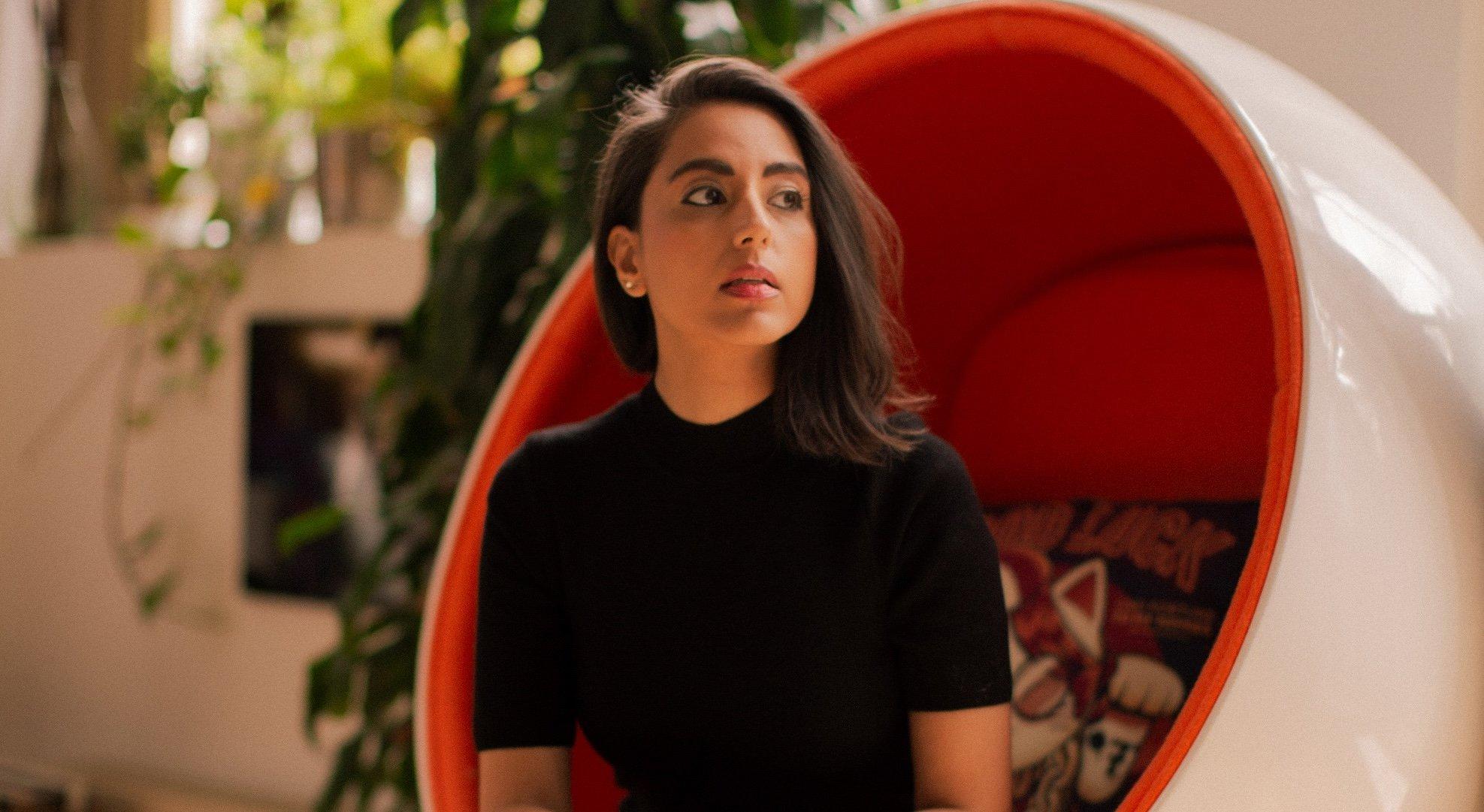
Photo: Grace Phillips
interview
Beatport's Sofia Ilyas On Creating A More Equitable & Connected Music Industry
"What I love about the music industry is there are so many gaps, and so many observations you can make and sort of insert yourself in and create something quite special itself," Sofia Ilyas of carving out a career as a music professional.
Given that Beatport Chief Community Officer Sofia Ilyas has dedicated the last 15 years or so of her life supporting burgeoning artists, subgenres and underrepresented groups, it's somewhat surprising that she grew up in a household without music.
As a teen, a Sony Walkman with a radio and mixtapes featuring the likes of Radiohead were a lifeline to a world Ilyas' family didn't want her to participate in. She was even kept home during school field trips to the National Gallery museum in London, where she's since hosted her Piano Day music and art event, and will soon be curating a room for their 200th anniversary celebration.
Ilyas has had to sacrifice a lot — namely, a relationship with her strict Muslim family — to carve out a career in music, and hers is a story of patience and resilience. After leaving her home in Cardiff, Wales for London to pursue higher education (against her family's wishes), she found solace and connection in live music. She'd hang out around the sound booth and introduce herself and ask questions about how things worked. Slowly but surely, she befriended people that worked at labels and venues, and even artists — Four Tet grew to know her by name after she kept coming back to his shows.
After years of being a part of the London scene as a dedicated fan, at age 30, Ilyas became co-manager of indie record label Erased Tapes, where she helped popularize neoclassical music and one of its purveyors, experimental German pianist Nils Frahm. Alongside Frahm, Ilyas launched Piano Day, where a diverse range of artists help them celebrate the past, present and future of the instrument alongside contemporary dancers and painters.
Now, as the first Chief Community Officer at major dance music platform Beatport, Ilyas is building community within and across disparate global electronic communities. She aims to bring more women and people of color into the mix.
"We're living in a time where people are feeling incredibly lonely and disconnected from community," Ilyas tells GRAMMY.com. "I [want to] facilitate people to come in to hear from each other, especially women, in a room that feels safe to hold discussion."
GRAMMY.com recently caught up with Ilyas for an insightful, engaging conversation on her work to support women and people of color in electronic music, making piano cool, her hopes for a more equitable music industry, and much more.
This interview has been edited for clarity.
You recently hosted your Piano Day annual events in Melbourne and London — tell me your vision for Piano Day.
When we launched Piano Day in London with Nils [Frahm], it gave me an excuse to try my own events. I had the artists performing in different corners of the room and a painter in the middle, watching and being inspired. I've always looked at different arts and wondered why they can't also be present in the music world and why we can't support each other across various industries. I've had a contemporary dancer at almost every event I've done in London. Piano Day was my way of having my own event that I could own and really show off my curation. Even with the first event, people were saying the space was beautiful and the curation was so good. I felt really validated.
[For Piano Day,] I always ask artists what they can do that's a little bit different, beyond performing their album or recent EP. I had one artist who had never played piano before, and he made a few mistakes and everyone was applauding him like it's okay. It's really important to me that Piano Day offers something that maybe the audience will never see again and they feel they've experienced something very special. An even bigger extension of that is the lineup that I curate for the National Gallery; coupling a piano player with a dancer who had never met before, and multiple artists only ever played piano maybe three times. I love that the artists have felt safe to trust me and that it's the type of event where they can take a risk.
I'm always looking for acts that are open to trying something a bit different and to be challenged by the fact that it's solo piano predominantly. And to also be inspired by the space, the National Gallery is such a prestigious, iconic venue. It's quite an unusual event because you've got people who've come to see the artists and regular visitors who have just come to see the paintings and they happen to stumble across what's happening. What's even more special for me is the audience is full of children. [I've been wondering] how we can do more music events that kids can come to, because I saw how inspired they were.
You'll be returning to the National Gallery in May to help curate their 200th anniversary event. How are you thinking about everything it stands for while bringing it into the future with music and women and people of color?
I've always had an attachment to the Gallery because there were school trips to it and my parents would never let me go. So for them to email me, "Hey, we've been to a couple of your events, would you like to bring Piano Day to the National Gallery?" I was just overwhelmed and hugely complimented.
I went to each room, sat down and thought about the feelings [it brought up]. I ended up landing on the blue room, it's got a lot of English paintings in it. I liked the idea of English artists against old English paintings, sort of breaking that mold of stiffness and classical looks to be like, this is now the future of London coming into the gallery. We placed the piano right in front of this really famous huge horse painting to really make that statement.
I am very mindful of having a diverse and interesting lineup. I always have one artist that starts the event that is a nod to the traditional kind of way of playing [piano]. It usually evolves to some artists playing the neoclassical sounds and then it moves into more the dance element and vocalist and then it ends on "this is the future" type of thing. I always like having that momentum.
Let's talk about your new record label RISE. What's your vision is with it and who are the artists you're currently working with?
I started Rise last year for artists that want help to get to the next level and get the attention of the label they want. I wanted to do a label that was within my bandwidth because I have a full-time job. If there're artists that I can help get from point A to B, then they go on to C, that's a great thing. I have Frank Hopkins on the label, who's an electronic artist, and Kareem Kumar, who's a Black artist who is known for playing in the streets of London. [Kumar] has built an incredibly huge audience on socials that has been a real inspiration to so many youngsters during COVID. They played together for the first time at the National Gallery, where Frank added some really nice ambient sounds and Kareem played the piano.
Too often, labels are quite a stiff experience, they want to assign that artist forever. If there are any artists that want help on press releases, overall branding and PR, that's exactly what RISE is there for. We can help them release some records, sort their online profile and offer guidance to basically uplift the artist so they can get the attention of booking agents, a label etc.
I see the future of labels where they are this sort of incubator-type of model, where they help an artist and the artists can grow into their own team or go off into another label. I envisage more labels existing like mine, where they're helping the artists onto that next level.
What do you think needs to shift for the music industry to be more supportive — financially and otherwise — of artists, particularly young people of color?
One thing that could be great is the labels that are doing well commercially — I'm sure they do this to a certain extent — choose two artists every year for an incubator program and make it more visible. Right now, most labels' A&R is a very closed thing. I think [it would help] if the labels made a very clear way of sending them demos. I know it is difficult because these days, even [people at] labels are so overworked and they don't have time to think about things like this. Maybe a music organization or a body out there could pick this idea up and take it to some of the major labels.
On the live side, [we need] more community spaces where an artist can come by and play regularly to fans and bring their friends and family around. Most venues are so hard to get on the bill, [so there's a need for] smaller 100-capacity-or-so spaces that open the doors more to local artists. We rely on the same names over and over again, whether it's festivals or local clubs, etc.
With your work as Beatport's Chief Community Officer, what are you actively doing to bring in and celebrate more women and people of color in dance music?
I've always been aware of diversity and my color and who I am in the music industry. Especially when I was around all those white male composers who knew everything about production and I knew nothing, that was very daunting. Even things like drinking — I don't drink and the amount of times it feels uncomfortable to be in the music industry. Many people in South Asian communities, especially Pakistani, grew up in a non-drinking culture, and we should have awareness to make those people feel comfortable otherwise they're never going to join the music industry.
What's been incredible is that Robb [McDaniels, Beatport's CEO] and the team have been, "You own it, you do what you believe." In the first few months, I hired a DEI consultant named Vick Bain, who was an amazing mentor for me. I'm a real big believer in experts. I was able to really upskill myself very fast through having her around.
Putting aside diversity, we're living in a time where people are feeling incredibly lonely and disconnected from community. That's why I'm doing panel events with DJ sets with Beatport. I [want to] facilitate people to come in to hear from each other, especially women, in a room that feels safe to hold discussion.
First meeting of the year was at the National Gallery. Can’t wait to curate my piano event there this year 🥳 pic.twitter.com/RVNFNZWdTV
— Sofia Ilyas (@sofiailyas) January 5, 2024
How have you taken it upon yourself to bring more women and artists of color with you along the way, and do you make space and advocate for people?
It's always something that's on the top of my mind because being a South Asian woman in music is already quite difficult at moments. You look around wondering Is there any support for me? And with my journey of having walked away from my family, part of me is already exhausted from that experience and existing in the music industry in an environment that often feels very alien to me.
Just being a woman in a C-Suite position isn't not easy. I've never been in a role where the focus is to champion women and that's why I'm so grateful for Beatport.
Throughout my career, I've always given out a lot of free PR and guidance, and quite often that's been for women. I've always wanted to be available and I'm always happy to give my time. If anyone reads this, and they want to email me and ask me any questions, I'm always really happy to help.
What's some advice you have for young women of color that want to work in the music industry but don't know where to start?
What I love about the music industry is there are so many gaps, and so many observations you can make and sort of insert yourself in and create something quite special itself. Once you start getting to know your local community, [you can get] so much support from others. I made a lot of my friends by going to vinyl markets and going up to my favorite labels and saying hi. When I was trying to work in the music industry and sending a ton of emails, I got nothing in return. But as soon as I started being a bit more active in the live [music] side, I met so many people.
Don't think you need to do it alone. For so many years, I kept what I was experiencing to myself and I would always present this polished person on Instagram. Lately, I've started really opening up more about how I feel. When I turned 43 recently, I posted on Instagram about how I sometimes overwork to avoid [loneliness]. I was surprised by how many people, especially men, messaged me and said I feel that way too. I'm learning to be more vulnerable.
Don't be afraid to ask questions. You just have to get over ego and fear. I can't sugarcoat it; unfortunately, there are [some] people who are going to make you feel really stupid for asking. Lean on your friends and know you're on the right path. Know that we need more women and more diversity in the industry. Look at people that inspire you. When I used to look at Four Tet, I'd be like, Oh my God, an Indian man on stage, that's so cool. So, look for your inspiration points and be vulnerable with your friends, because it is going to be difficult sometimes. And you can definitely email me anytime. [Chuckles.]
What does a more equitable music industry look like to you?
Well, that's a big question. I think [it would involve] everyone being more conscious. Whether it's a booking agent or a label looking to sign someone, if everyone is thinking around diversity and consciously looking and making their spaces more open to women. I always think about open doors. How can everyone open their doors more while considering the space people are entering into. It's one thing opening your door but it's another thing if that person enters a space and doesn't feel safe.
For me, a place where everyone's consciously thinking about this, and it isn't just on the organization or a few artists or someone like me in my role to try and figure it out. I think if everyone was conscious of it, things would just happen more seamlessly.
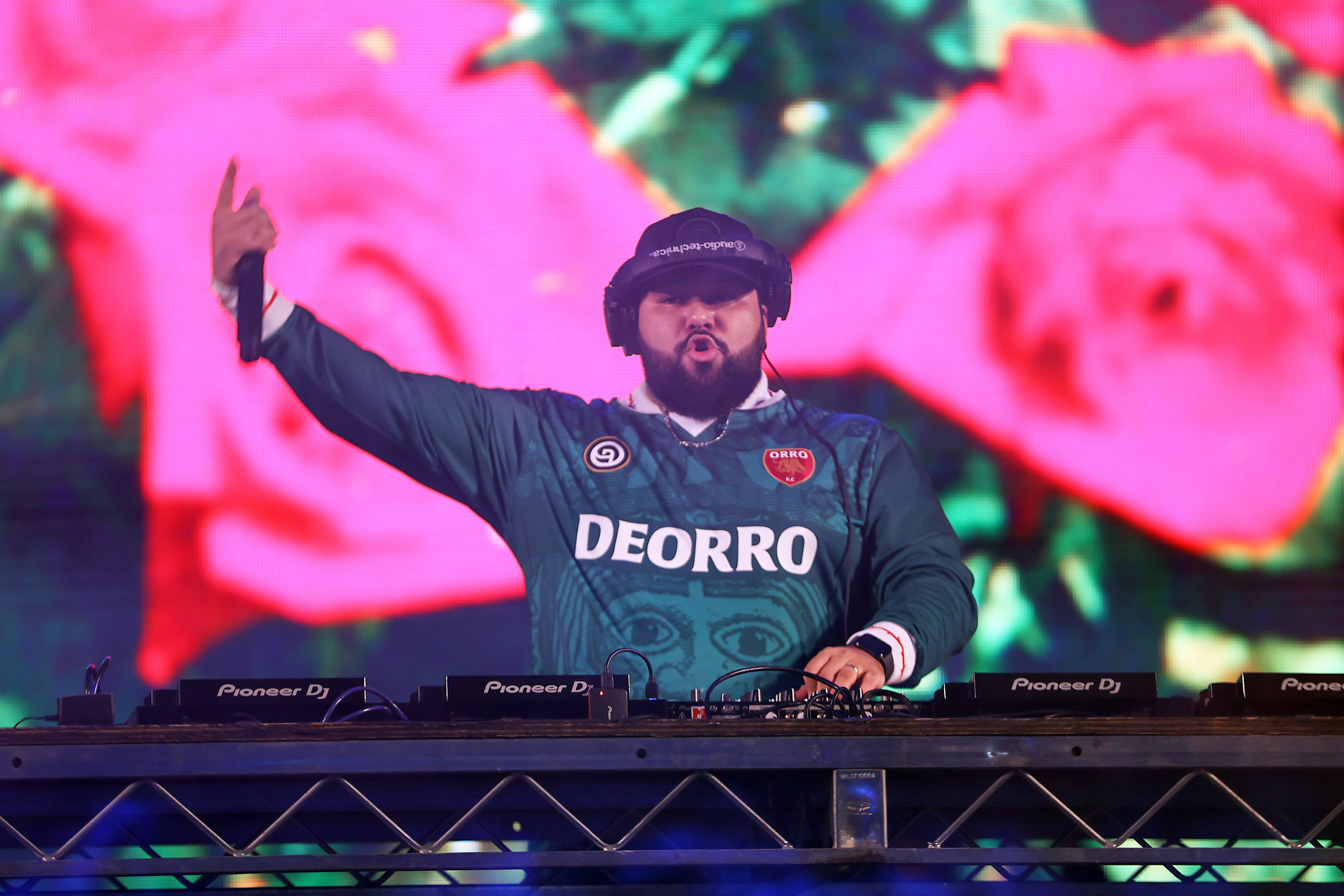
Photo: Omar Vega/Getty Images
list
8 Essential Latin Electronic Releases: Songs And Albums From Bizarrap, Arca & More
Electronic sounds can be heard throughout Latin music and will be recognized in a new Field and Category at the 2024 Latin GRAMMYs. In honor of the new Best Latin Electronic Music Performance award, read on for eight Latin electronic music essentials.
Electronic music is embedded within the diverse world of Latin music and, for the first time, will be recognized in a new Field and Category at the 2024 Latin GRAMMYs. Within that field, the award for Best Latin Electronic Music Performance was created to shine a light on DJs, producers, and artists blending proudly blending electronic music with the sounds of their cultures.
Electronic music embodies various subgenres like house music, techno, trance, electronica, and many others rooted that have been popularized by DJs and producers. Latin artists have long enriched those subgenres: Mexico's Belanova globalized the electro-pop wave, while Bomba Estéreo blended cumbia with electronica in Colombia.
The explosion of EDM in the 2010s also allowed the careers of Latinx DJs to flourish. Mexican American DJ Deorro has showcased both cultures during sets at music festivals like EDC, Coachella, Tomorrowland, and more. Arca's music pushes the boundaries of electronic music through a Venezuelan and Latin American lens. More recently, Colombian producer Víctor Cárdenas bridged the gap between EDM and reggaeton with the global hit "Pepas" by Farruko. Since then, electronic music has seeped through the work of Latin hit-makers like Tainy, Caleb Calloway, Bizarrap and Diego Raposo. "Pepas" and many of Bizarrap's music sessions crossed over onto Billboard's Hot Dance/Electronic Songs.
"That’s something that’s very big for us," Deorro tells GRAMMY.com about the new category. "How beautiful that this is happening, because it shows that what we’re doing is working, we’re breaking down doors, and we’re creating more opportunities for artists like us in the future."
In honor of the Latin Recording Academy's new Field and Category, here are eight must-hear Latin electronic music essentials.
Belanova - Cocktail (2003)
Belanova revolutionized the Latin music space with their 2003 debut album Cocktail, an atmospheric LP that seamlessly blends Latin pop with electronic music. In the dreamy deep house of "Tu Ojos," singer Denisse Guerrero sang about getting lost in her lover's eyes. The trippy techno of "Barco De Papel" was reminiscent of the music from Madonna's Ray of Light album. Electronic music on the ambient level wasn’t common in Latin music until Belenova changed the game in Mexico, which later reverberated into the rest of Latin America and the U.S.
The trio — which includes guitarist Ricardo Arreol and keyboardist Edgar Huerta — later delved into electro-pop on 2007's Fantasía Pop, which won a Latin GRAMMY for Best Pop Album by a Group or Duo the following year.
Arca - Kick I-II (2020)
Venezuelan producer/artist Arca is a pioneer in the Latin electronic music space. Arca first began producing her experimental electronica in Spanish with her 2017 self-titled album.
Arca then masterfully mixed the diverse sounds of Latin America and beyond with EDM throughout her Kick album series.
For Kick I, she combined Venezuelan gaita music and reggaeton with a cyberpunk edge in "KLK" featuring Spanish pop star Rosalía. Arca then blended electronica with neo-perreo on Kick II's "Prada" and "Rakata." Both albums garnered Arca GRAMMY and Latin GRAMMY nominations.
As a trans and non-binary artist, she is also breaking boundaries for the LGBTQ+ community in the genre. Arca is just not creating more space for queer artists in Latin music, but also in EDM at large by embracing the totality of herself in song.
Bomba Estéreo - Deja (2021)
Bomba Estéreo, which is comprised of core members Simón Mejía and Liliana "Li" Saumet, has masterfully melded the music of Colombia’s Caribbean coast with electronic music. Since breaking out in 2008 with their sophomore album, the group has often reimagined the African and Indigenous rhythms of their country like cumbia through dance music. Bomba Estéreo’s folkloric approach to EDM has led to collaborations with Bad Bunny, Tainy, and Sofi Tukker.
In 2021, Bomba Estéreo released its most ambitious album Deja, which garnered a GRAMMY and Latin GRAMMY nominations. The title track put a funky spin on the band's signature electro-tropical sound. House music collided with the Afro-Colombian rhythms of champeta in "Conexión Total" featuring Nigerian singer Yemi Alade. Their album that was based on the four classical elements was a breath of fresh air in the Latin music scene.
Bizarrap - "BZRP Music Sessions #52" (2022)
Argentine producer Bizarrap launched the BZRP Music Sessions on YouTube in 2018, first remaining behind the console for freestyle rapping sessions with local acts. The sessions quickly went viral, and have featured increasingly larger names in music.
Over the past five years, Bizarrap worked elements of electronic music into his hip-hop productions. In 2022, he fully delved into EDM with his global hit "BZRP Music Sessions #52" featuring Spanish singer Quevedo. The traptronica banger peaked at No. 4 on Billboard's Hot Dance/Electronic Songs and earned Bizarrap his first Latin GRAMMY Award.
Since then, his music sessions have become a global event. Bizarrap later infused electro-pop with a trap breakdown in "BZRP Music Sessions #53" with Shakira, which garnered him two more Latin GRAMMY awards.
Javiera Mena - Nocturna (2022)
Javiera Mena first debuted as an indie act in 2006 with Esquemas Juveniles. With that freedom as a producer and artist, the Chilean star pushed Latin music into the electronic space with her 2010 album Mena.
She fully immersed herself into Latin electronica on her latest album, 2022's Nocturna — an album filled with nighttime club bangers that invite everyone to dance with her. Mena also proudly sings about being part of the LGBTQ+ community in the alluring "La Isla de Lesbos" and the fierce house music of "Diva" featuring Chico Blanco. Considering the influence of queer artists in the formation of electronic genres like house, it’s refreshing to see an artist like Mena remind people of those roots and bring that into Latin music.
Deorro - Orro (2022)
Mexican American producer Deorro has established himself as one of the world's top DJs, and is known for mixing both of his cultures into his music festival sets. Even before the música mexicana explosion last year, he was one of the first mainstream EDM acts to bring the genre to music festivals around the world through his songs and remixes.
With his debut album, 2022's Orro, Deorro fully bridged música mexicana with house music. He collaborated with Latin acts like Mexico's Los Tucanes De Tijuana and Maffio in "Yo Las Pongo," which blended the band's norteño sound with EDM. Deorro also explored cumbia with deep house in the sweeping "Dime" featuring Los Ángeles Azules and Lauri Garcia. In his recent sets, he is spinning a fiery remix of "Ella Baila Sola" by Eslabon Armado and Peso Pluma
Sinego - Alterego (2023)
Sinego first broke through in 2019 thanks to his house bolero sound like in "Verte Triste," which put a refreshing spin on an age-old Cuban genre. With traditional genres within the Latin diaspora often falling to the wayside as the years go on, he is reintroducing them to new audiences through EDM reimaginings.
For his debut album, 2023's Alterego, the Colombian producer pushed his electronic music to another level. Sinego traveled to different Latin American countries and Spain to record with local musicians, reimagining genres like cumbia, tango, and mambo through Sinego's EDM lens. With the sultry "Mala," he blended Venezuela's variation of calypso with house music. He also gave Brazilian samba a house music makeover in "Boa Noite" featuring Tonina.
Diego Raposo - Yo No Era Así Pero De Ahora En Adelante Sí (2023)
Dominican producer Diego Raposo has helped Latin acts like Danny Ocean, Blue Rojo, and Letón Pé embrace elements of electronic music. In 2018, Raposo released his debut album Caribe Express, which demonstrated his knack for mixing the sounds of the Caribbean with EDM.
Raposo took that inventive mix into overdrive with last year's Yo No Era Así Pero De Ahora En Adelante Sí. The otherworldly "Si Supieras" featuring Okeiflou blended house music with reggaeton, while "Al Contrario" with Akrilla aggressively mixes drum 'n 'bass with dembow. Rapaso also channels Dance Dance Revolution-esque electronica in the spellbinding "Quédate" with Kablito.
7 Latin DJs To Watch In 2023: Gordo, Arca, The Martinez Brothers & More
